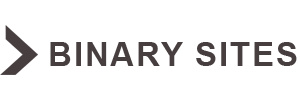
Whether you are losing money as a trader and trying to get back on your feet or you are doing pretty well and simply looking for areas where you could improve, you probably are tempted to focus on what you are doing wrong. This is what trading websites and coaches generally recommend.
Figure out your mistakes.
List behaviors to change, reduce, or eliminate. Are you breaking your rules? Are you taking too much risk on at once? Are you trading without discipline? But is this the only way to improve as a trader? Maybe not.
What you rarely seem to hear traders talk about is what they are doing right. But change is not only about eliminating mistakes and bad habits; it is also about discovering and cultivating the best in ourselves. It is about finding our strengths and growing into better versions of ourselves as traders.
Oftentimes, if you ask a trader what he or she is doing to win trades, you get a general answer like, “Well, I follow my system closely,” or “I trade with discipline,” or even, “I avoid making mistakes.” Ask that same trader what he or she does that causes losing trades, and you will get a much more specific list of sins.
Good performance that is repeated often is never a mistake, however, and if you want to keep repeating it, it is important to understand every phase of your process in detail. That process is not just a process of elimination whereby you drop certain unhelpful behaviors. It is also a process where you do certain helpful behaviors over and over again.
This is why it is important to start identifying your best practices as a trader.
How can you do that?
You can start by keeping a trading journal, if you do not already. Begin logging each day in a greater level of detail. Write down your rationales for all your trading decisions, and not just “my system said to do it.” Write down in detail why your system told you to take a trade or leave it. This is how you start figuring out the most useful aspects of your system and understanding why they work.
After a few months of detailed observations, hopefully you can come up with a list of best practices. Some examples might be observations like these:
Keep in mind that these are all just examples. While some of them may be applicable to any trader (like using a checklist), others may only be applicable to certain traders with certain types of systems and personality traits. Your own list may be very different.
Also notice that these best practices cover a variety of different aspects of trading:
- Specifics relating to the trader’s method
- Scheduling considerations
- Life habits and mindset before and during trading sessions
- General trading procedures
Also notice that one of the items mentioned is using a checklist. What is great about taking the time to identify your best practices is that you can then go and add them to your trading checklist. A really superb trading checklist will not just codify a set of steps, but will also remind you of the best practices for carrying out those steps (as well as mistakes to avoid).
Becoming a real expert involves more than just memorizing procedures. It involves finding the subtle nuances of each of those procedural routines, and understanding the small modifications that can make them extra effective. Remember that this process is an ongoing one. Continue to conduct ongoing performance reviews, and keep up with your trading journal. Trading is a fluid activity, and even your best practices may transform over time.
Keep On Reading
